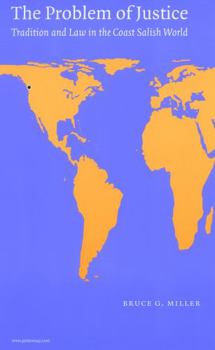The Problem of Justice: Tradition and Law in the Coast Salish World (Fourth World Rising)
Select Format
Select Condition 
Book Overview
For the indigenous peoples of North America, the history of colonialism has often meant a distortion of history, even, in some cases, a loss or distorted sense of their own native practices of justice. How contemporary native communities have dealt quite differently with this dilemma is the subject of The Problem of Justice, a richly textured ethnographic study of indigenous peoples struggling to reestablish control over justice in the face of conflicting external and internal pressures. The peoples discussed in this book are the Coast Salish communities along the northwest coast of North America: the Upper Skagit Indian Tribe in Washington State, the St lo Nation in British Columbia, and the South Island Tribal Council on Vancouver Island. Here we see how, despite their common heritage and close ties, each of these communities has taken a different direction in understanding and establishing a system of tribal justice. Describing the results--from the steadily expanding independence and jurisdiction of the Upper Skagit Court to the collapse of the South Island Justice Project--Bruce G. Miller advances an ethnographically informed, comparative, historically based understanding of aboriginal justice and the particular dilemmas tribal leaders and community members face. His work makes a persuasive case for an indigenous sovereignty associated with tribally controlled justice programs that recognize diversity and at the same time allow for internal dissent.
Format:Paperback
Language:English
ISBN:0803282753
ISBN13:9780803282759
Release Date:September 2001
Publisher:University of Nebraska Press
Length:240 Pages
Weight:0.75 lbs.
Dimensions:0.5" x 5.5" x 9.0"
Customer Reviews
0 rating





